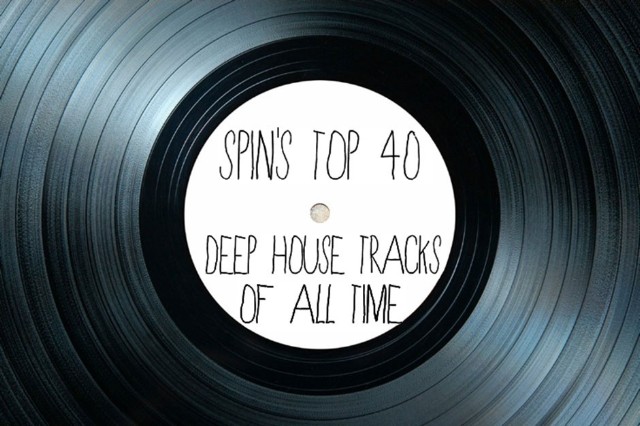Fallout, “The Morning After (Sunrise Mix)” (Fourth Floor Records, 1987)
These days, Brooklyn’s Lenny Dee is known mainly as the doyen of hardcore techno, a style his Industrial Strength label helped inaugurate in 1991 with its very first release, Mescalinum United’s “We Have Arrived” b/w the Mover’s “Nightflight (Non-Stop to Kaos).” But it wasn’t always that way. In the 1980s, the former roller-disco DJ turned out some of New York’s seminal house classics working alongside Frankie Bones (as Looney Tunes), Victor Simonelli, and Tommy Musto. Armed with a TR-808, Roland D50, and Casio CZ101, Dee and Musto were inspired by synth-pop artists like Peter Gabriel and Paul Hardcastle when they began laying down the dreamy, meandering jams that would become “The Morning After”; a more direct inspiration was the druggy, private after-hours parties at the RoofTop, a 23rd-floor speakeasy in Manhattan. Their woozy aftereffects (or “Fallout,” as the two musicians called themselves, in tribute to the feeling) are replicated in drifting flute-like melodies, buoyant string pads, and snares that palpitate like a heart running on fumes. P.S.
Axel Boman, “Purple Drank” (Pampa, 2010)

Also Read
The 30 Best Britney Spears Songs
“I woke up with your name on my lips,” intones a dusky voice, a hair slower and lower than might be natural, but not so much that it feels forced. And with that, you’re sucked into the moody, muddle-headed hypno-scape of Axel Boman’s “Purple Drank,” a woozy blue fog that settles in and blots out everything of the world outside its quivering organs and numbing bass stabs. You don’t need the title to tell you that the track is all about a kind of druggy stasis, where a single thought does somersaults through your head while your body draws curlicues across the space that surrounds you. As the chords build strength and the beat drops away, the vocals fall into a locked groove, and “Lips-lips-lips-lips” turns into “slip-slip-slip-slip…” It’s Steve Reich meets Steve Miller; time keeps on slippin’, but this cup is bottomless. P.S.
Omar-S, “Psychotic Photosynthesis” (FXHE, 2007)
We could’ve gone with Omar-S’s “S.E.X. (C.G.P. (Conant Gardens Posse) Remix),” if only because it’s clearly the housier track, with deep-diving Rhodes keys, a skipping groove, and sultry R&B vocals. “Psychotic Photosynthesis” is tougher to parse, stylistically: Is it techno? Ambient? It’s defined in part by what it’s not. There’s no snare, no clap, really no drums at all, save for a muted kick and some shaved-down shakers; if you listen really closely, you might hear a woodblock pecking away deep in the mix, but for the most part the rhythm is marked by the absence of hard edges. It beats in the manner of wings, every pulse exploding into a million feathery micro-movements. But we’re going to go ahead and call it “deep house” anyway. The rhythm moves more with the laid-back wriggle of house than the hunched-shoulders tumble of techno, while its infinite variations on a single, lilting melodic theme open up a fractal passageway to another dimension, where “deep” and “high” are basically indistinguishable. P.S.
Luomo, “Tessio” (Force Tracks, 2000)
“The next episode in house,” read a sticker on the album’s sleeve, and damned if it wasn’t right. Coming at a time when European techno was awash in clicks and cuts and glitches and digital divots, Luomo’s Vocalcity took those same techniques and pointed them back toward house music’s soulful heartland, swathing springy machine funk in scraps of breath and even the occasional full-blooded vocals.No one had expected this from Sasu Ripatti, better known as Vlasidlav Delay — a former free-jazz drummer turned free-form ambient minimalist whose shifting silt-scapes expressed the contours of a prodigious drug habit (long since kicked, happily). Here were actual songs, albeit stretched to perilous length, like a cord that’s about to snap, and smeared to the limits of abstraction with filters and dub delay. Hell, the shortest song on Vocalcity ran nearly 10 minutes long, and the longest more than 16. “Tessio” steals the bass line from the Human League’s “Don’t You Want Me,” schools it in the spunky ways of Larry Heard, and piles on cotton-candy vocals that sound like 10cc having their way with Motown’s master tapes. P.S.
The Other People Place, “Sorrow and a Cup of Joe” (Clone, 2002)
Detroit’s Drexciya never really made anything close to house music; they were too busy attaching jumper cables to Davy Jones’ locker in order to power their own, inimitable brand of Afro-futurist electro-techno. But on a curious song called “Sorrow and a Cup of Joe,” released not long before his death in 2002, Drexciya’s James Stinson gave the subgenre one of its strangest, most bittersweet classics. The syncopated 808 groove is textbook electro, but slowed to 118 BPM and suffused in parallel-harmony chords, it turns gelatinous and gloopy, taking Detroit beatdown to busted, burned-out new extremes. “Only mochaccino make me feel alright,” runs the chorus, little more than an absent-minded murmur. And that one word — “mochaccino,” really? — flips the whole thing on its head, a glimmer of humor that makes sorrow itself seem faintly ridiculous. A feel-good-feeling-bad anthem for the ages. P.S.




